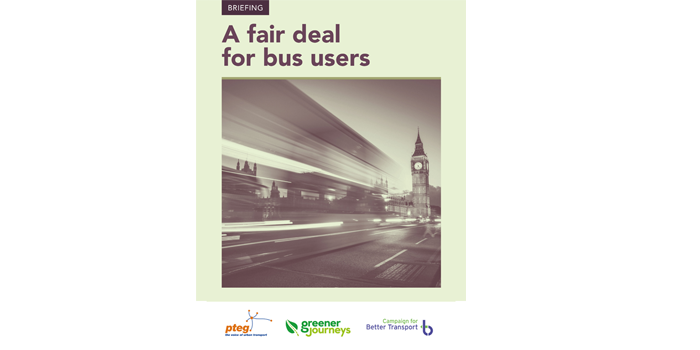July 30 2015
Every day, buses carry millions of people to work, to shops and to education and training. Buses help older people to be part of their communities, as volunteers or carers. Furthermore, buses are a cost-effective way to reduce road congestion and cut pollution and carbon emissions. As a result, public investment in bus services represents very high value for money.
Buses are by the far the most popular form of public transport. In 2013/14, there were more than three times as many bus journeys as rail journeys. However, buses are something of a “Cinderella service” in transport policy. They have been one of the biggest losers when tough decisions have been made on transport funding. In real terms, the overall funding level for bus networks outside London is around £500 million lower than it was in 2010/11.2
This briefing sets out the contributions that buses make to the UK’s economic prosperity and way of life. It then summarises the various forms of public support to bus services and passengers and describes the impacts on service of cuts to local government spending. There is a discussion of grant funding from central Government, particularly the Bus Service Operators Grant (BSOG) and the ways in which it provides the taxpayer with good value for money. The paper concludes with a discussion of the likely economic and social consequences of any further reduction in grant funding, and suggests a way forward.
